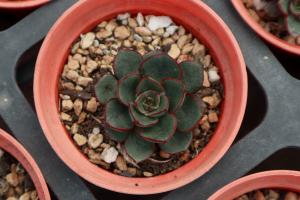Does Tea Tree Oil Kill Plantar Warts?
Plantar warts are caused by the human papillomavirus (HPV) and are often found on the soles of the feet. These warts can be painful and unsightly, and many people are looking for natural ways to get rid of them. One popular remedy is tea tree oil, but does it actually work?
The Evidence
Research has shown that tea tree oil may be effective at treating warts, including plantar warts. A study published in the Journal of Family Practice found that tea tree oil was effective at treating warts in 60% of the participants. Another study published in the Australian Journal of Dermatology found that topical application of tea tree oil was effective at reducing the size and appearance of warts in children.
How Tea Tree Oil Works
Tea tree oil contains terpenes, which are organic compounds that have antiviral, antifungal, and antibacterial properties. When applied topically, tea tree oil can penetrate the skin and attack the virus that causes plantar warts.
Some experts recommend diluting tea tree oil with a carrier oil, such as coconut oil, before applying it to the skin. This can help to prevent skin irritation and other adverse reactions.
Using Tea Tree Oil for Plantar Warts
If you want to try using tea tree oil to treat your plantar warts, here's what you need to do:
Clean the affected area with soap and water.
Dilute tea tree oil with a carrier oil (such as coconut oil) at a ratio of 1:1.
Apply the oil mixture to the wart and cover it with a bandage.
Repeat the process twice a day until the wart is gone.
It's important to be patient when using tea tree oil to treat plantar warts. It can take several weeks or even months for the wart to fully disappear.
Precautions
Tea tree oil is generally considered safe when used topically, but it can cause skin irritation and other adverse reactions in some people. Before using tea tree oil to treat your plantar warts, it's a good idea to do a patch test first. Apply a small amount of the oil to a small area of skin and wait 24 hours to see if you have any adverse reactions.
It's also important to note that tea tree oil should not be ingested. Swallowing tea tree oil can cause serious adverse reactions, including confusion, coma, and loss of muscle control.
Conclusion
While more research is needed, the evidence suggests that tea tree oil may be effective at treating plantar warts. Its antiviral properties make it a natural choice for those looking to avoid harsh chemical treatments. If you decide to use tea tree oil to treat your warts, be patient and follow the precautions outlined above to ensure safe and effective use.

 how many times do yo...
how many times do yo... how many planted tre...
how many planted tre... how many pine trees ...
how many pine trees ... how many pecan trees...
how many pecan trees... how many plants comp...
how many plants comp... how many plants can ...
how many plants can ... how many plants and ...
how many plants and ... how many pepper plan...
how many pepper plan...































